
This article is part of a collaboration between FT Globetrotter and Nikkei Asia, in which we showcase the best journalism from Nikkei Asia writers about cities across the region, starting with Tokyo, Hong Kong and Singapore. You can read more from Nikkei Asia here
This article is part of FT Globetrotter’s guide to Tokyo
There is no task quite as daunting as deciding where to eat on a Friday night in Tokyo. Sushi, ramen, sashimi, tonkatsu, yakiniku, okonomiyaki — the endless list of choices, each one as tempting as the next, is enough to paralyse even the most decisive diner.
That is, if you’re a carnivore.
For those seeking a plant-based meal, the pickings are much slimmer. With almost all main Japanese dishes centred around fish, meat or eggs, and bonito fish flakes forming the base of most soups and broths, vegan options have, until recently, been limited to salads, plain rice and chilled tofu.
Veganism remains a relatively new concept in Japan, a country that has built its diet on rice, fish and meat for centuries. In fact, outside of the big metropolises like Tokyo, Kyoto and Osaka, it’s still not uncommon for people to not have heard of the term “vegan”. In Yamagata, a picturesque rural town in Japan’s northern Tohoku region that I called home for two years before moving to Tokyo in 2021, the announcement that the local Starbucks would begin serving plant milk in 2020 generated such excitement and intrigue that it made local news headlines.
But in post-pandemic Tokyo, thanks to a huge influx of foreign tourists since the borders reopened and growing climate consciousness among locals, veganism is slowly but surely beginning to infiltrate the culinary landscape.
Plant-based versions of classic dishes such as ramen are popping up on the menus of major restaurant chains, swapping out pork for soy meat and bonito broth for vegetable stock. Non-dairy milk is creeping its way into the matcha lattes of the capital’s hipster coffee shops. And the statement “I’m vegan” from friends visiting from back home (the UK) no longer instils quite as much panic in me.
Granted, all-vegan menus remain few and far between, but they’re increasingly springing up across Tokyo’s trendiest neighbourhoods, if you know where to look. Below are some of the cafés and restaurants pioneering Tokyo’s small but powerful plant-based revolution.
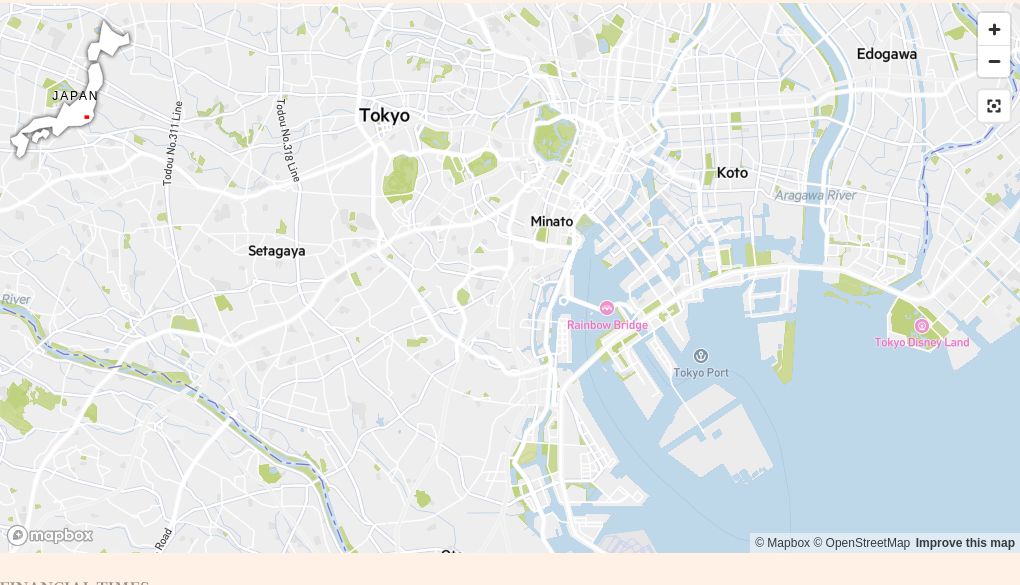
Izakaya Masaka
B1, Shibuya PARCO, 15-1 Udagawacho, Shibuya-ku, Tokyo 150-8377
-
Good for: Crispy fried “chicken”, alcoholic drinks
-
Not so good for: The food menu is quite limited
-
FYI: You may have to queue outside (they don’t take reservations), but the line is fast-moving
-
Opening times: Daily, noon–10pm (last orders, 9pm for food, 9.30pm for drinks)
-
Reservations: No
-
Website; Directions
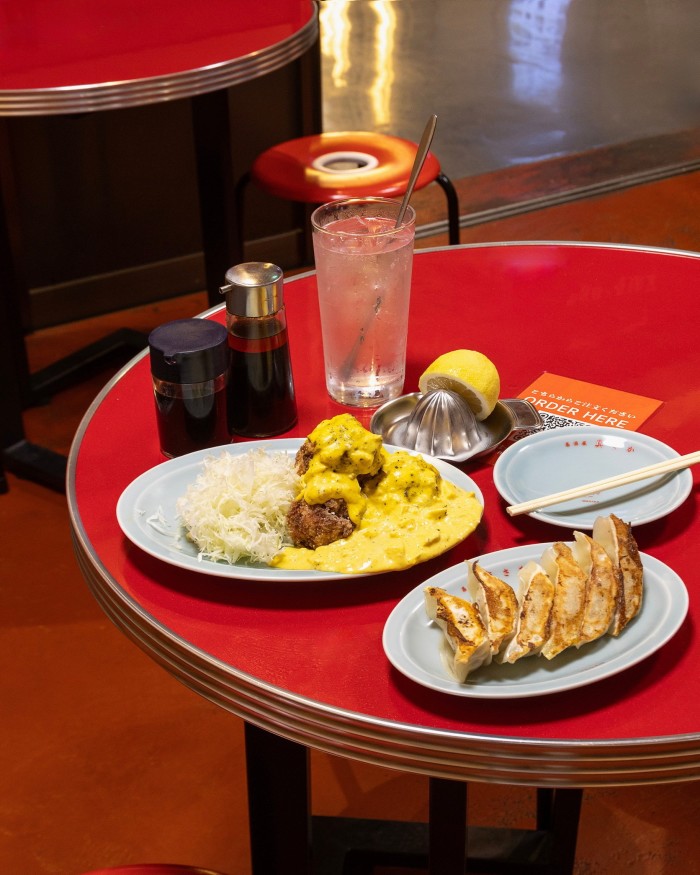
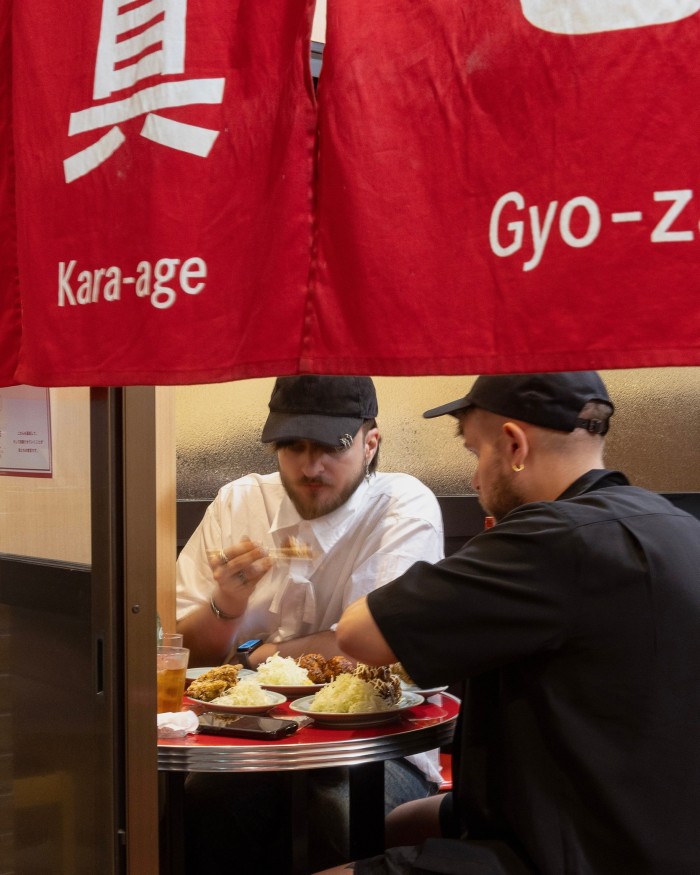
Izakaya Masaka, in central Shibuya, has made it its mission to ensure vegans do not miss out on Japanese foodies’ guiltiest pleasure: karaage (fried chicken). Its plant-based take on the crispy treat is so juicy and flavour-packed that it’s hard to distinguish from the real deal, but is in fact made using soy protein. You can choose from several different sauces to smother your karaage in — the spicy yuzu mayonnaise is my recommendation.
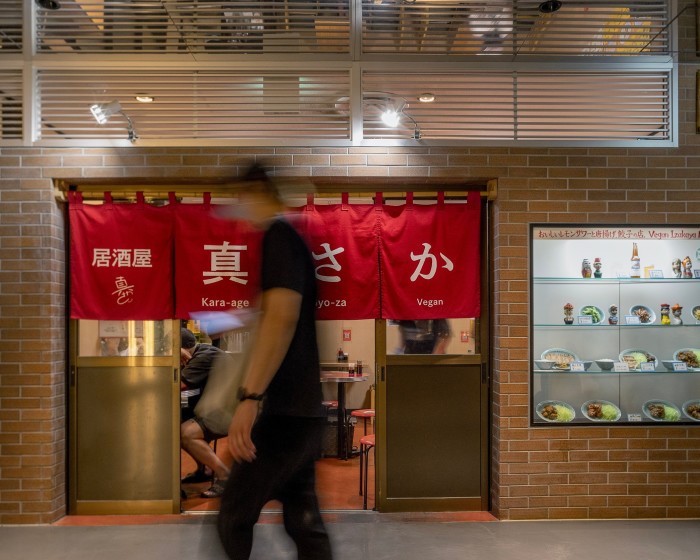
Founder Nobihiro Toriba opened Izakaya Masaka in 2019 after turning vegan on a whim the year before. Toriba says he struggled to find plant-based options when eating out in Tokyo, and didn’t want fellow vegans to miss out on Japan’s traditional izakaya (pub) culture. He designed Masaka to replicate the cosy, local atmosphere of a small-town izakaya, complete with wobbly metal stools and sticky tables, right in the middle of Shibuya’s shiny shopping district.
All dishes on the menu — the vegan karaage, gyoza and spicy mapo tofu — come with a generous serving of rice, pickles and soup for ¥1,200 ($7.60/£5.90) or less, making this a popular comfort-food spot for budget-conscious travellers and locals.
Komaki Shokudo Kamakura Fushikian
CHABARA, 8-2 Kanda Neribeicho, Chiyoda-Ku, Tokyo 101-0022
-
Good for: Local ingredients, authentic rural cooking
-
Not so good for: Prices are on the higher side
-
FYI: The oat-milk matcha latte is a delight
-
Opening times: Daily, 11am–8pm (last orders, 7.30pm)
-
Reservations: By phone, but not essential
-
Website; Directions
Located under the train tracks of the bustling Akihabara station, Komaki Shokudo brings a taste of the Japanese countryside to Tokyo. Its menu is a modern reimagining of shojin ryori, a vegan cuisine traditionally eaten by mountain-based monks, or yamabushi.
Komaki’s dishes rely on tofu and domestically grown vegetables, as well as miso and grains to deliver fresh, diverse flavours and textures, packed with nutritional value. The teishoku (set meals) allow you to sample a range of small plates, including seasonal pickles, soups, fried tofu, roast vegetables and more. Prices range from ¥1,980 ($12.50/£9.70) to ¥3,850 ($24.50/£19) for a set.
If you’re looking for something a bit more familiar, they also serve vegan fried “chicken”, burgers and curry — all beautifully presented on traditional ceramic dishes.
Vegan Bistro Jangara
Champs Harajuku 2nd Building 2F, Jingumae 1-13-21, Shibuya-ku, Tokyo 150-0001
-
Good for: Wide selection of plant-based ramen, extensive drinks menu
-
Not so good for: Long queues, especially at weekends
-
FYI: Kyushu Jangara Ramen, the chain that owns the bistro, also runs several ramen shops across Tokyo. Its menus include plant-based options
-
Opening times: Daily, 11am–10pm (last orders, 9pm)
-
Reservations: No
-
Website; Directions
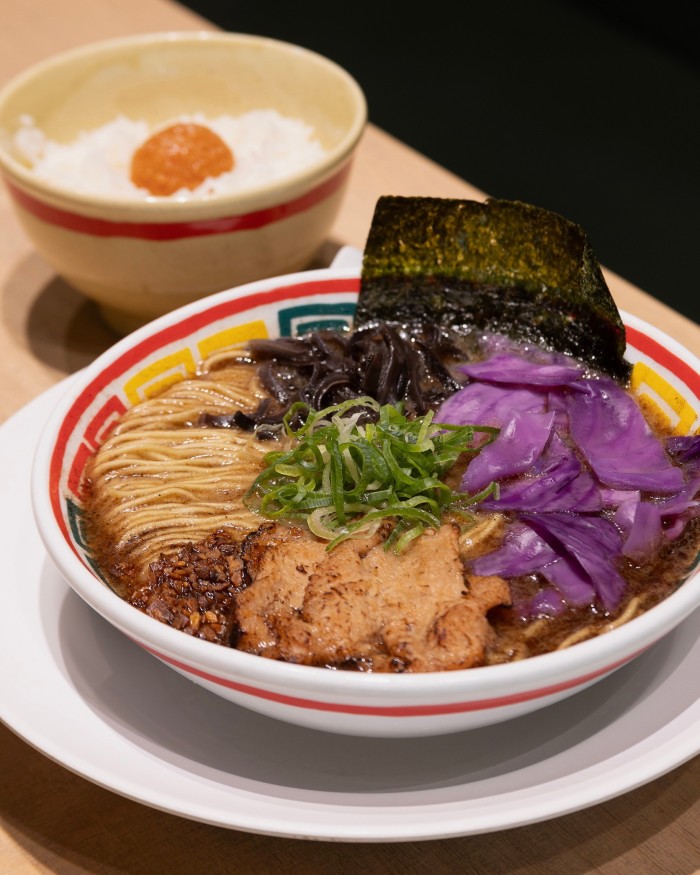
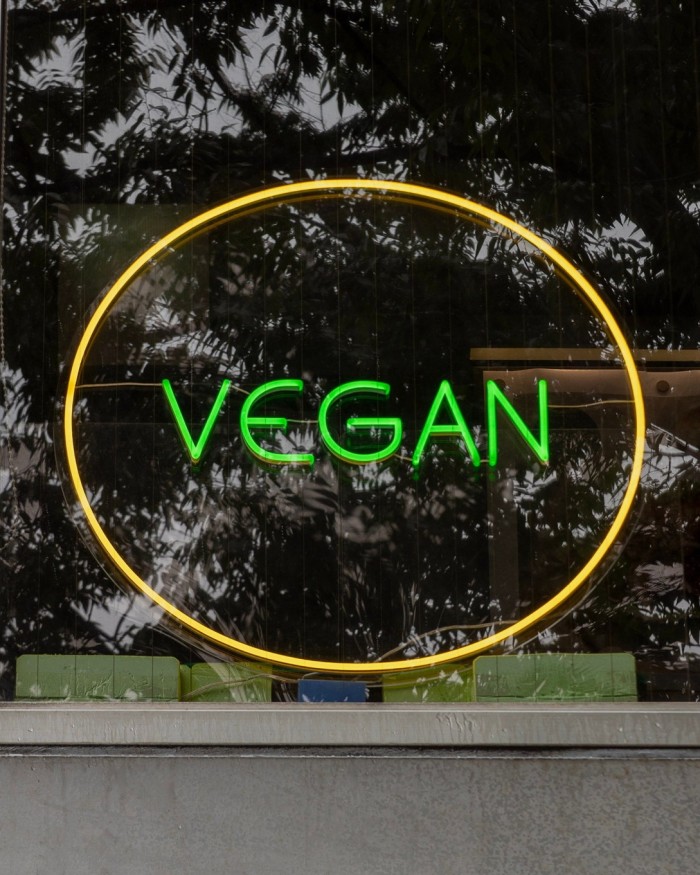
Vegan ramen is not nearly as elusive in Tokyo as it was pre-pandemic, but it’s still rare to come across a restaurant with as many varieties as Vegan Bistro Jangara.
The bistro, hidden away above a convenience store near the entrance to the Meiji Jingu shrine, opened amid pandemic restrictions in 2021 and flew under most people’s radars until Japan’s borders reopened in late 2022.
From spicy to soy sauce-based and tonkotsu, the ramen menu has something for everyone, each crafted with soy–meat chashu and vegetable-based dashi broth.
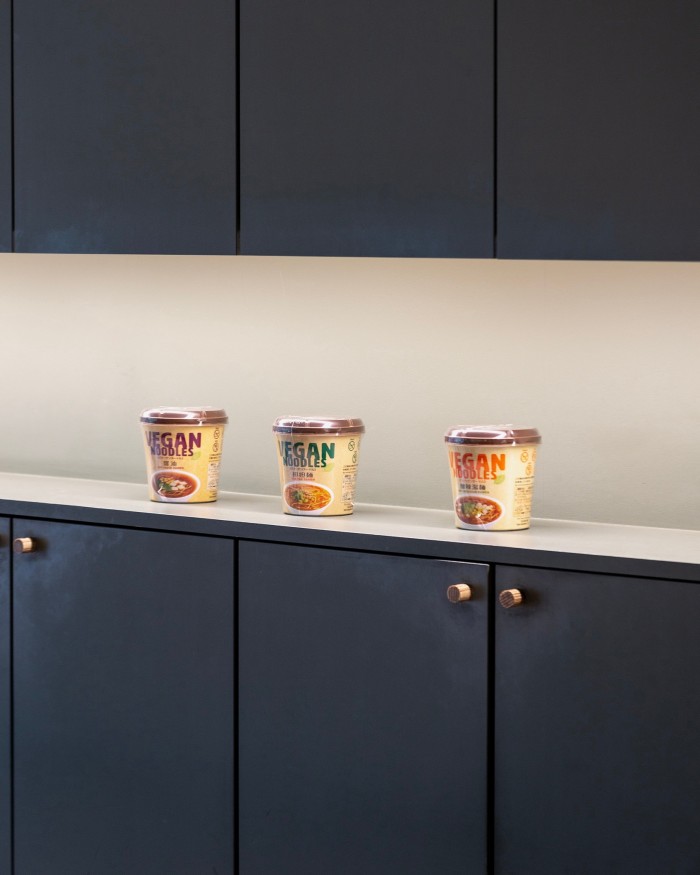
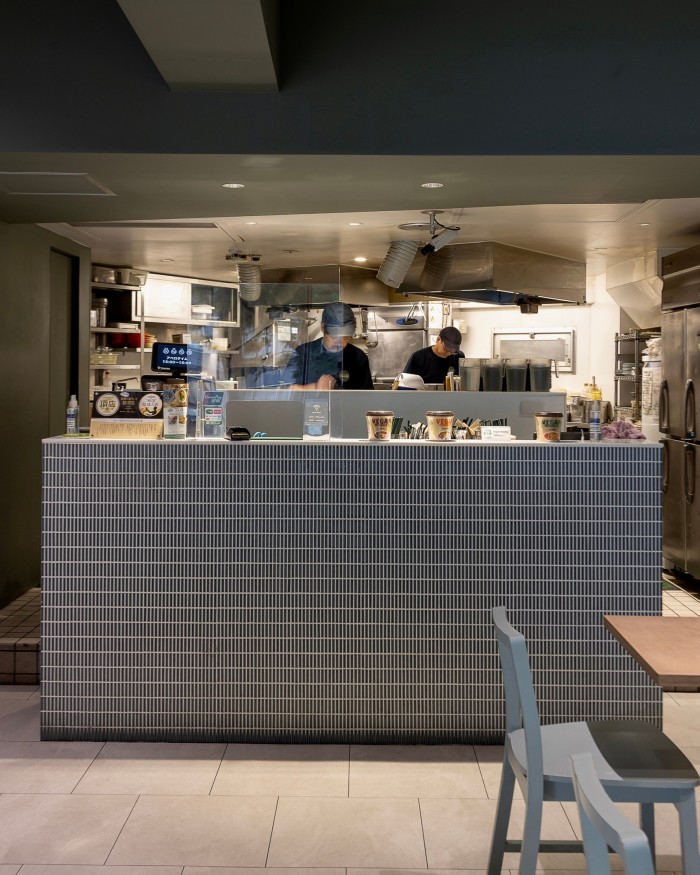
For those after something lighter, the keiran noodles are a must-try. Jangara’s vegan twist on Kyoto’s traditional egg-drop soup uses scrambled tofu skin (yuba) instead of eggs, and a light, oil-free broth that, combined with springy gluten-free noodles, serves as a healthier but equally flavourful alternative to ramen.
If noodles aren’t your thing, fear not: Jangara also does vegan-friendly curry, burgers, poutine, buffalo “chicken” and desserts, including soy-milk pudding and mousse cakes.
The bistro has become a not-so-secret favourite among tourists and locals alike in the past year, so expect a queue.
Café Chairo
Chaan Omotesando 1F, 5−11−13 Jingumae, Shibuya-ku, Tokyo 150-0001
-
Good for: Instagram-worthy desserts, cat lovers
-
Not so good for: Savoury food (there’s none on the menu)
-
FYI: You need to remove your shoes at the door
-
Opening times: Daily, 12.30pm–7pm
-
Reservations: No
-
Directions
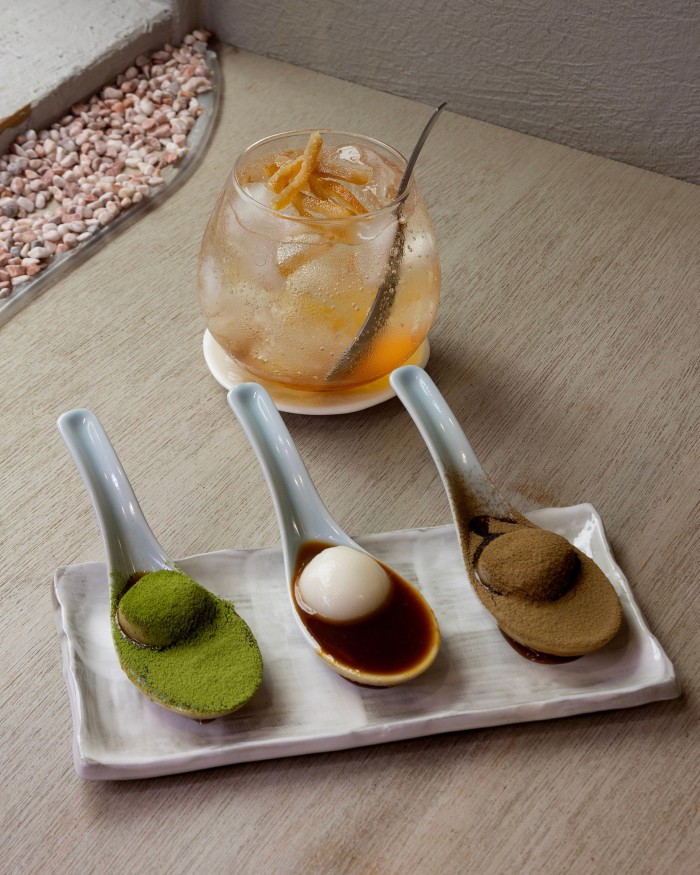
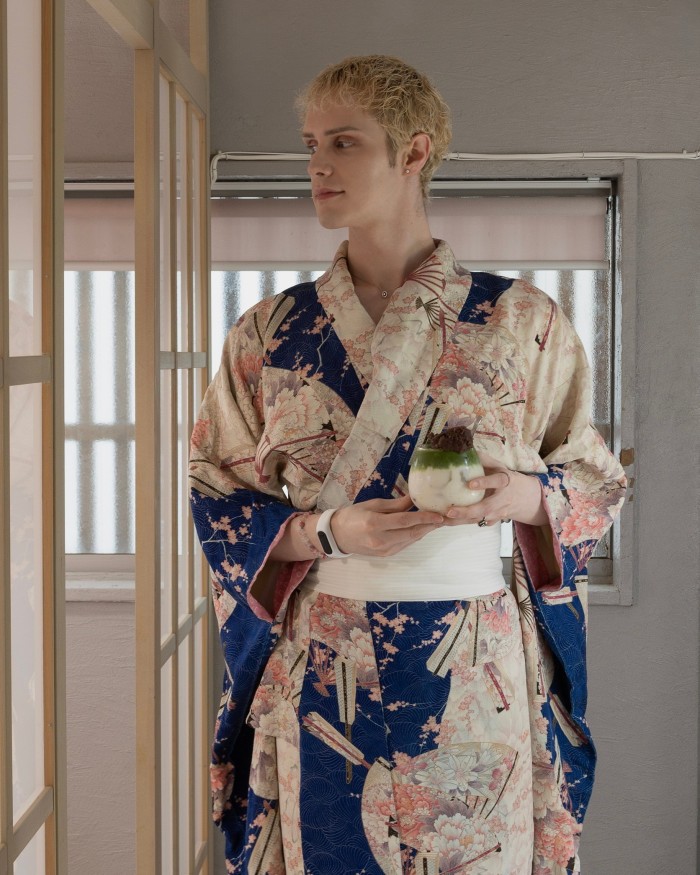
Down a quaint side road near Harajuku’s famous shopping hub, Cat Street, is Café Chairo (literally, “Café Brown”), the perfect spot for some mid-shopping respite.
Its all-vegan menu features a variety of traditional Japanese desserts, including fluffy dango (sweet rice balls) and oshiruko (sweet red-bean soup with mochi), along with a creative selection of plant-based drinks, ranging from a cashew-milk, burnt-caramel latte to homemade seasonal-fruit sodas. Its gooey matcha cinnamon roll is also a highlight.
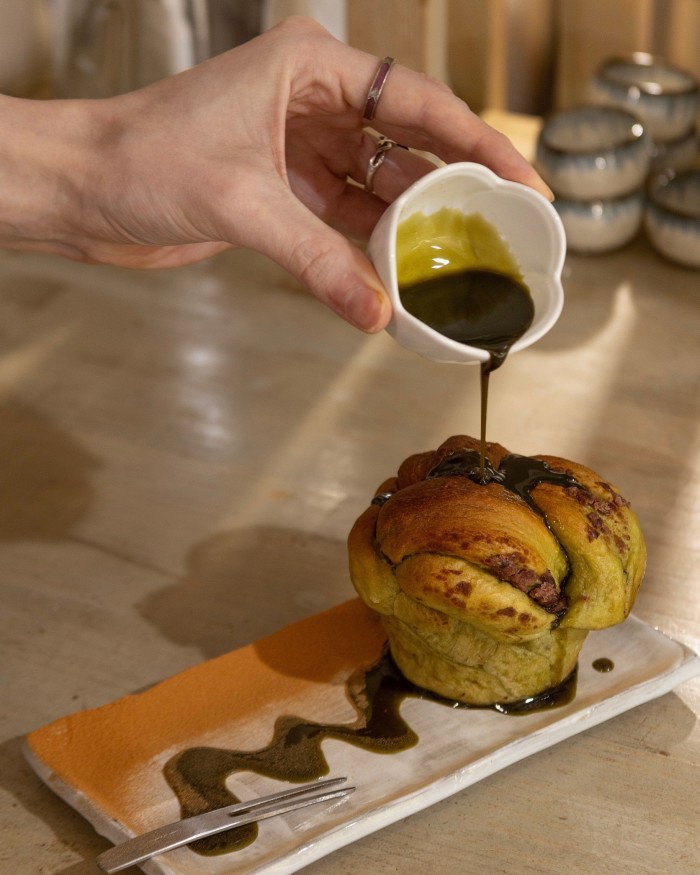
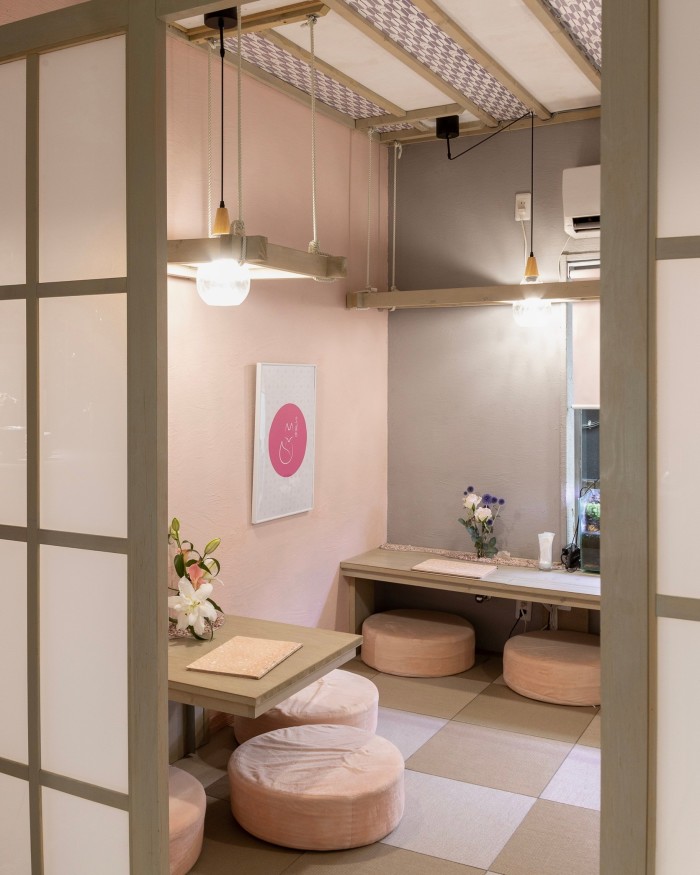
The café’s founder, James Brown, hails from Boston, US, and ran a Japanese tea shop back home before moving to Tokyo and opening Café Chairo in Shibuya in 2021. Inspired by his own lactose intolerance, Brown says he launched the café to foster “a culinary culture of inclusion, safety and belonging”.
The interior is a modern take on an old-style Japanese garden, complete with greenery, Zen-inspired stonework and kimono-wearing wait staff. When he’s not asleep, the café’s fluffy live-in cat, Koneya, will keep you company while you muster the energy to re-emerge into the Shibuya crowds.
Gonpachi Nishi-Azabu
1-13-11 Nishi-azabu, Minato-ku, Tokyo 106-0031
-
Good for: Vegan “sushi”, traditional izakaya atmosphere
-
Not so good for: It’s a bit of a tourist trap
-
FYI: The main restaurant is open for lunch and dinner; Sushi Gonpachi opens at 5pm
-
Opening times: Main restaurant: Daily, 11.30am–midnight (last orders, 11pm). Sushi restaurant: Daily, 5pm-midnight (last orders, 11pm)
-
Reservations: Not essential but highly recommended. Available for 11.30am-10pm, online or by phone
-
Website; Directions
Gonpachi’s Nishi-Azabu branch is probably best known for inspiring the set of Uma Thurman’s iconic yellow-catsuit fight scene in Quentin Tarantino’s 2004 film Kill Bill, but has recently made a name for itself among Tokyo’s vegan community, too.
The restaurant is named for the legendary 17th-century samurai Shirai Gonpachi, a popular character in kabuki theatre. Its original menu centres around classic izakaya favourites, such as grilled fish, soba noodles and yakitori (grilled meat skewers).
The vegan menu, which launched in 2020, repurposes those dishes for a modern, plant-based audience. It features seasonal vegetable ‘sushi,’ vegetable ‘caviar,’ veggie tempura, and even a vegan version of yakitori. The colourful dishes can be enjoyed alongside Gonpachi’s wide selection of Japanese sake and other traditional izakaya drinks, including highballs.
For a fancier dinner date, Sushi Gonpachi — an upscale sushi joint that launched a new vegan course in February — can be found on the third floor of the restaurant. The “Vegan’s Paradise” set is an artistic arrangement of Gonpachi’s best vegan dishes, served with a rainbow of pickles, salads and sauces. It will set you back ¥6,050 (£32) per person, but is guaranteed to scratch an itch for any vegans feeling left out on sushi night — the chefs even prepare the dishes right in front of you, in true omakase style.
Alaska Zwei
2-5-7 Higashiyama, Meguro-Ku, Tokyo 153-0043
-
Good for: Relaxed café atmosphere
-
Not so good for: Plant-milk selection (they have only soy)
-
FYI: Very quiet during the week, but can get busy at weekend lunchtimes
-
Opening times: Daily, 9am–6pm
-
Reservations: By phone, but not necessary
-
Website; Directions
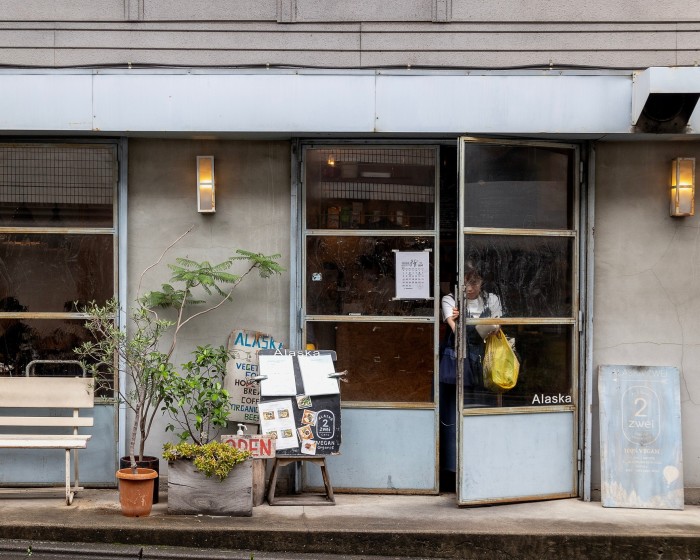
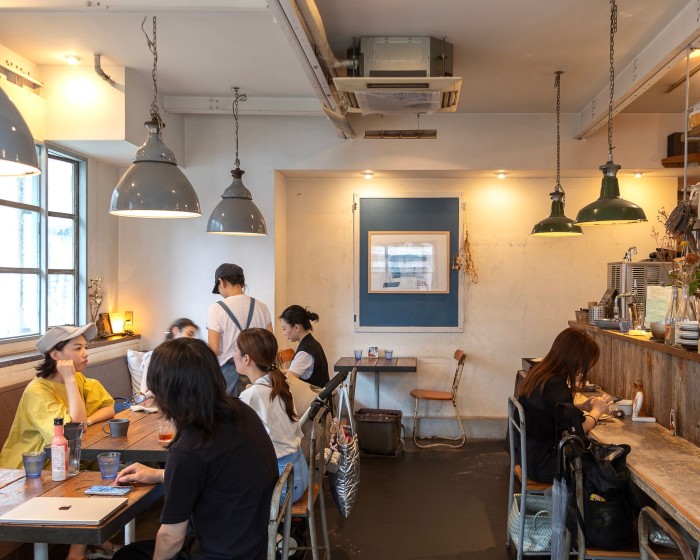
A rustic all-vegan café nestled down a narrow street in Tokyo’s hip Nakameguro district, Alaska Zwei offers reasonably priced lunch sets, sandwiches and a tasty range of cakes and desserts. The portions are generous and feature a colourful assortment of fresh vegetables, which can be hard to come by in Tokyo.
The quiet location, open-plan design and pet-friendly policy make the café popular with remote workers and solo diners, but it’s also a good choice for a laidback, weekend coffee date.
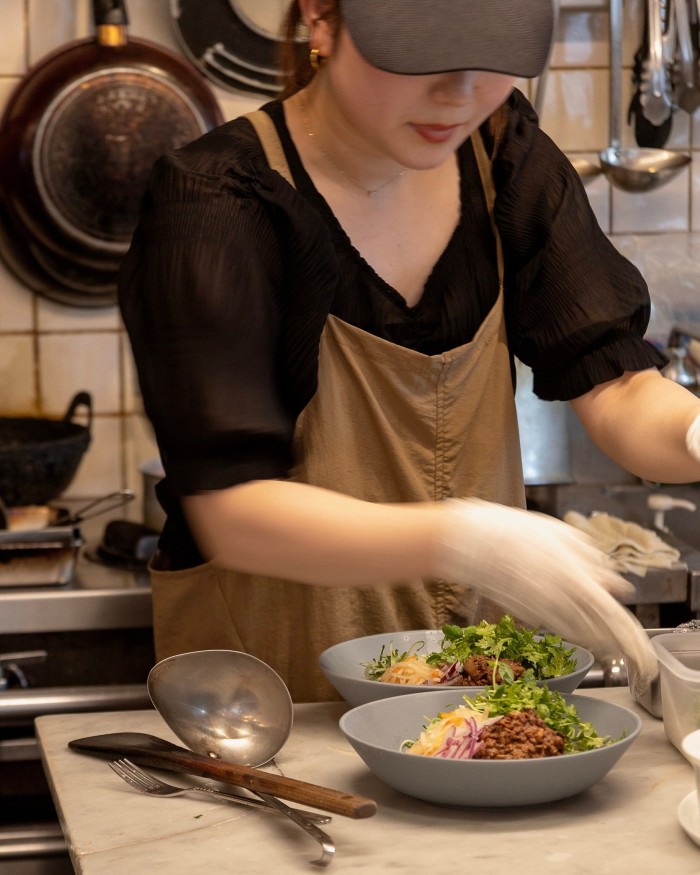
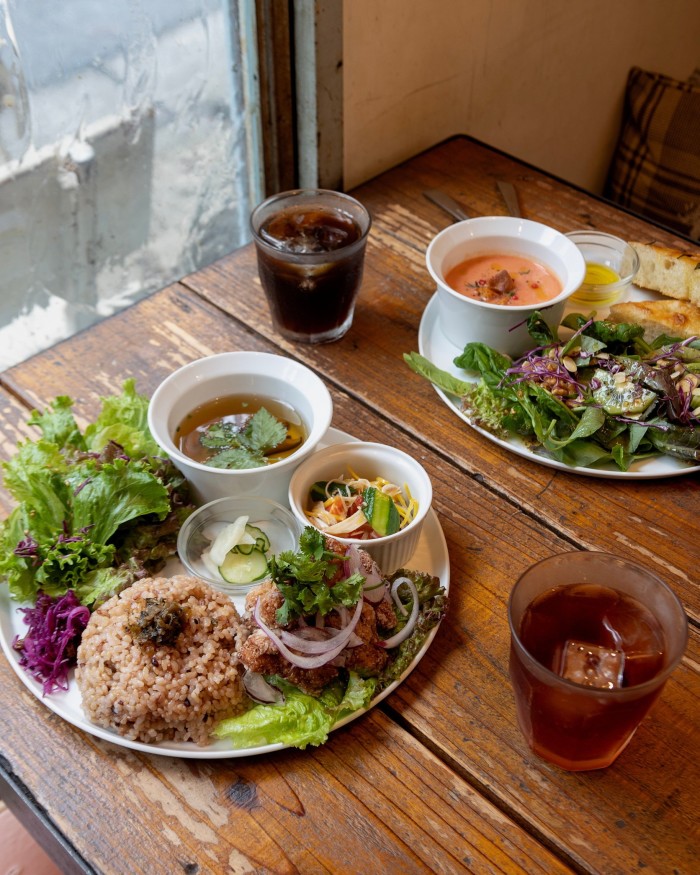
The lunch options include curry, Vietnamese-style banh mi, salads and a brown-rice plate, which comes loaded with crispy fried tofu, pickled vegetables, soup and a seasonal side dish. The café also serves alcohol, a diverse range of coffees and teas — the soy ginger latte is a personal favourite — and soy-milk soft-serve ice cream topped with fruit sauce.
Alaska Zwei has two sibling vegan bakeries, Universal Bakes and Café in Setagaya and Universal Bakes Nicome in Shimokitazawa — both of which are very worth a visit.
Tell us about your favourite vegan eatery in Tokyo in the comments below. And follow FT Globetrotter on Instagram at @FTGlobetrotter
Cities with the FT
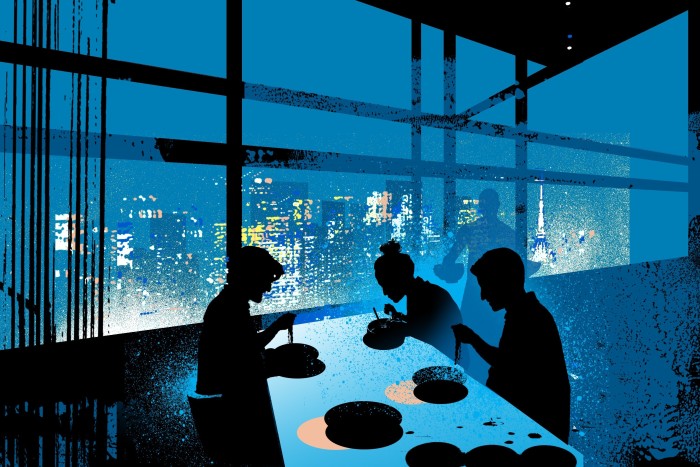
FT Globetrotter, our insider guides to some of the world’s greatest cities, offers expert advice on eating and drinking, exercise, art and culture — and much more
Find us in Tokyo, New York, Copenhagen, London, Hong Kong, Paris, Rome, Frankfurt, Singapore, Miami, Toronto, Madrid, Melbourne, Zürich, Milan, Vancouver and Edinburgh